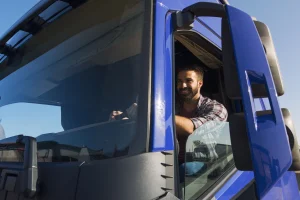The study marks the first comprehensive assessment of the adequacy of these regulations.
An interdisciplinary study published in the Royal Society Open Science reveals inadequacies in the regulations of five countries regarding animal transportation. Scientists specializing in animal welfare and a law professor examined animal transportation regulations in Australia, Canada, New Zealand, the EU (including the UK), and the US.
Led by researchers from the universities of Bristol, Essex, and British Columbia, the study marks the first comprehensive evaluation of the suitability of these regulations, highlighting serious deficiencies in animal protection during long journeys.
Livestock transportation, a stressful experience for most farm animals at some point in their lives, involves extended periods without access to food, water, or rest. Researchers analyzed four key risk factors in livestock transportation: fitness for transport, travel duration, weather conditions, and available space. The study focused on the regulatory structure aimed at preventing animal welfare issues.
Findings from the research underscore the need to improve regulations and establish future guidelines in all countries. For instance, the absence of travel duration limits for all animals allows for journeys spanning several days. Additionally, not all countries require periodic rest stops on long journeys, and those that do often impose insufficient times for meaningful recovery.

Updating transportation regulations based on the latest scientific knowledge would be a significant step toward enhancing animal welfare in this process, aligning industry practices with prevailing social values.
The research team reviewed recent and proposed changes in regulations, not yet enacted into law, as well as various options under consideration. Dr. Ben Lecorps, co-author and professor of Animal Welfare at the University of Bristol’s Veterinary School, concludes that current regulations are insufficient to ensure alignment with desired objectives. He highlights that the analyzed countries do not provide adequate protection to livestock during journeys, as critical risk factors, such as excessively long trips or exposure to heat, are not adequately addressed.
Dr. Eugénie Duval, co-author and professor at the University of Essex Law School, suggests that, while some regulations may not necessarily reflect the latest scientific evidence, some are more specific than others. She proposes that regulations could be improved by combining positive aspects from different regulatory frameworks, such as Canada’s fitness for transport and the EU’s specific temperature thresholds for vehicles, along with proposals from some countries, like the ban on exporting outside the EU borders. This could represent a significant advancement in preserving animal welfare during transportation.

What Truck Drivers Love Most About Their Job
Truck driving isn’t just a job; for many, it’s a calling that offers a unique blend of freedom, adventure, and independence. By Bob Dilliplaine, Industry

Frozen Roads After Bomb Cyclone: Black Ice, Record Snow and High Risk for Trucks
Frozen roads continue to disrupt freight transportation following the impact of a powerful bomb cyclone, leaving behind black ice, highway shutdowns, power outages, and dangerous winter driving conditions stretching from the Gulf Coast to New England.

Lunar New Year 2026: Ancient Traditions, Renewed Energy, and Massive Celebrations
Lunar New Year 2026 begins on February 17 under the sign of the Fire Horse and is marked by spiritual rituals, family reunions, and large-scale celebrations in both China and the United States, especially in California.

Freedom 250 Grand Prix: How Logistics and Transportation Will Power the Race in Washington
The first-ever IndyCar street race in Washington, D.C., scheduled for August 21–23, will headline the United States’ 250th anniversary celebrations — and it will trigger a massive transportation, freight, and urban logistics operation behind the scenes.

Groundhog Day: What It Means for Trucking When “Phil Sees His Shadow”
The forecast from America’s most famous groundhog is calling for more winter — and that’s an important signal for the trucking industry and cold-season route planning

Love on the open road: the best dating apps for truckers
If you’re looking for someone to go the long haul with, here are the best dating apps for truck drivers. They say love is everywhere…
